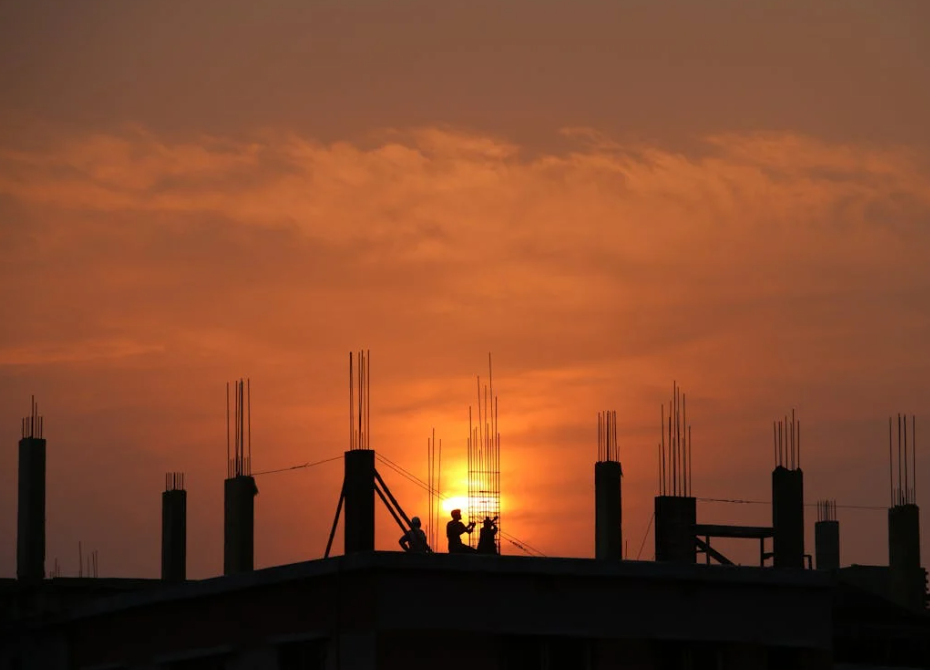
UAE Construction Disputes: A Complex Overview
20 August 2024
Glory Sony
The UAE Civil Code (Federal Law No. 5 of 1985) is the basis for resolving construction disputes in the UAE as it governs contractual relationships, obligations, liabilities and compensation for damages arising from construction projects.
Under the UAE Federal Law No. 6 of 2018 (Arbitration Law) construction contracts often include arbitration clauses specifying the rules and procedures for arbitration. This legislation sets out guidelines for conducting arbitral proceedings which include evidence submission, witness testimony and issuing awards which are enforceable in UAE courts.
As per UAE Federal Law no. 11 of 1992, courts have been specified for each jurisdiction over construction disputes based on factors of the parties location/projects involved. Initiating these legal proceedings requires filing statements of claim, submitting evidence and serving court documents to the parties for this, the law has established rules and guidelines.
The Dubai Building Code establishes comprehensive regulations which govern construction practices, safety standards and zoning restrictions in Dubai, which is crucial to establish the safety of construction projects. This code covers many aspects such as the structural design requirements, fire safety measures, accessibility standards, energy efficiency guidelines and environmental considerations.
Šarīʿah Law influences the legal framework for construction disputes in the UAE in matters relating to contractual obligations. Although the UAE’s legal system is mainly based in civil-law principles, certain matters are dealt with the Šarīʿah Law for parties of Islamic faith.
FIDIC Contracts like the FIDIC Red Book contracts are used in construction projects where the contracts provide a standardised format for governing contractual relationships, rights and obligations between parties involved in construction projects.
DISPUTE RESOLUTIONS MECHANISMS:
1.Arbitration - This offers a private and structured process where parties present their argument to one or more arbitrators who render a binding decision. They are faster and flexible compared to litigation with the parties having a greater control over the selection of arbitrators. UAE Arbitration Law No. 6 of 2018 governs this issue in the UAE.
2.Litigation - This involves resolving disputes through a formal court system in the UAE where parties present their case before a judge who renders its judgement based on the laws and evidence. Construction issues are held in specialised courts such as Dubai Courts or Abu Dhabi Courts with procedures governed by the UAE’s Civil Procedural Law (Federal Law No. 11 of 1992). This is necessary for complex disputes requiring judicial intervention and court judgements which are enforced through legal mechanisms.
3.Dispute Adjudication Boards (DAB): They are used in construction contracts governed by the FIDIC’s (International Federation of Consulting Engineers) standard forms. They consist of independent experts appointed to resolve disputes arising due to the construction process through informal hearings and recommendations. The decisions are binding by the DAB to prevent the issue from escalating to arbitration and litigation.
4.Expert Determination: This is when an independent expert is appointed to assess technical or factual matters in disputes and provide a binding decision. This is a better option when resolving the issue requires specialised knowledge such as the design or engineering disputes. This always depends on the complexity of the matter.
There are onshore (mainland) and offshore jurisdictions in the UAE where the UAE’s local courts do not have a specialist division dedicated for resolving construction disputes. However, it is common for the courts to appoint an expert or a panel of experts to advise on technical issues when required. For instance, in 2019, through a notice by the Dubai Courts a special judicial committee was established by a way of Decree to hear the claims and lawsuits by a specific developer. The UAE’s offshore jurisdictions include DIFC and the ADGM and like the local UAE Courts, the ADGM courts do not have a specialist division for construction disputes.
Recently, DAB’s work increased with the introduction of Federal Law No. 6 of 2018, confirming that partial and interim awards can be enforced locally which was not expressly informed.
Offshore jurisdictions such as the DIFC and ADGM encourage medication with the DIFC expressly encouraging parties to consider the use of ADR and the ADGM offers court-annexed medication which the ADGM rules further confirming an expectation in Part 36 of the ADGM Court Procedure Rules.
UAE enacted the Federal Law No. 40 of 2023 on the Mediation and Conciliation in Civil and Commercial Disputes which provided a clear framework for medication. It also mandated the Federal Judicial Council to establish a medication council.
The Mediation Law provides that documents in the mediation are confidential and not repeated in formal proceedings. Various mediation centre rules in the UAE also provide confidentiality such as the Practice Direction for ADGM Court-Annexed Mediation and the DIAC Mediation Rules 2023. Even then, the mediation agreement requires the mediation to be confidential and agree that the mediation falls within the Mediation Law.
Through the introduction of Federal Law no. 15 of 2023, the arbitration issues are governed and institutional arbitration is more common by parties within English being their preferred language. The enforcement of arbitral awards is also viewed positively with the enforcement of domestic awards being governed by the Federal Arbitration Law.
As for the governing Law and Arbitration providers, the ICC is a commonly used arbitral form which was opened in ADGM in 2021. The ADGM provides its own set of Arbitrational Regulations based in part of the UNCITRAL Model Law and there is no restriction on parties choosing another institution to arbitrate within the ADGM. In addition, the DIAC launched a new set of arbitration rules in 2022 and in December 2023, the Abu Dhabi Chamber of Commerce and Industry announced the launch of the Abu Dhabi International Arbitration Center, replacing the previous ADCCAC rules.
In Dubai, the Dubai Law No. 32 of 2008, provides that the DLAD shall receive complaints and any party that wants to bring a civil claim, shall file it with the DLAD. Failure in complying with this requirement will nullify the claim filing process resulting in the claim being dismissed as a result of failing to file as prescribed by the law.
In respect of enforcing a foreign arbitral award locally in the UAE, Article 223 of the Federal Decree-Law No. 42 of 2022 provides an order of enforcing an arbitral award to be made when the issue is arbitrable and enforceable in the country in which it was made. There is a list of condition that must be verified for an execution order is made as per Article 222 which states that:
1.The UAE’s courts have no jurisdiction to try the dispute and it was issued by a court with the jurisdiction however,
2.The parties were summoned and duly presented,
3.Judgement or order has acquired the force of ‘res judicata’ where issued,
4.It does not conflict with a judgement or order already made by the Court of the UAE and contains nothing that conflicts with morals or public order in that state.
The statutory limitation period for every claim is around 10-15 years and is contingent to the local jurisdiction and issue.
In conclusion
there are various jurisdictions in the UAE for construction issues. By understanding the common causes of disputes, leveraging available dispute resolution mechanisms, and seeking expert legal advice, parties can increase their chances of achieving successful project outcomes.
ALKETBI TOUCH:
ALKETBI team of construction lawyers can be an invaluable asset to both contractors and buyers. For contractors, they can assist in contract drafting, claim preparation, and representation in dispute resolution proceedings. For buyers, they can provide guidance on contract review, defect assessment, and enforcement of contractual rights. By engaging legal counsel early in the project lifecycle, parties can mitigate risks and protect their interests.
Latest News



05/23/2025
Gandhi AlMinaj

05/18/2025
Mustafa Salaheldin Eltahir






